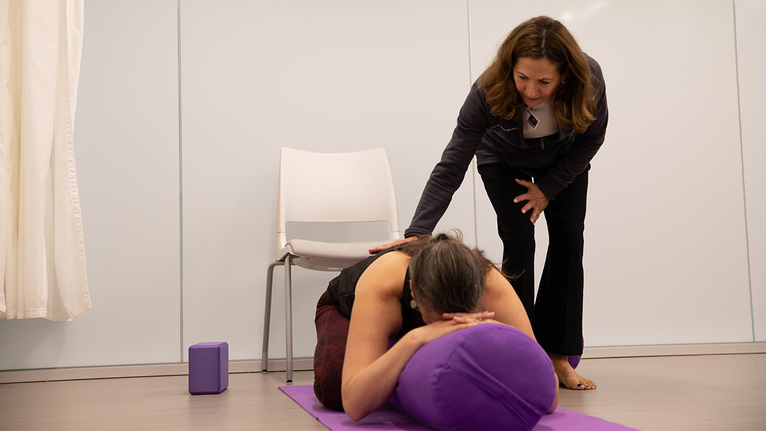Treating the Person Beyond the Cancer
Clinicians at the University of Cincinnati Cancer Center understand that despite receiving the most effective and personalized treatments, patients still may experience a wide variety of unwanted and unexpected side effects—ranging anywhere from anxiety and pain to fatigue and difficulties eating. To combat these, the integrative medicine specialists often prescribe complementary therapies like acupuncture, meditation, music therapy and/or yoga and tai chi, amongst other integrative treatments, depending on their symptoms.
Practices like music therapy or yoga have been endorsed by the American Society of Clinical Oncology (ASCO), through recommendations from the Society for Integrative Oncology (SIO). The treatments have been recommended for many different possible cancer side effects, including anxiety and stress, depression and mood disorders, nausea and vomiting, and have been shown to improve overall quality of life.
“We have a variety of modalities with the goal to alleviate suffering, to reduce the symptoms of cancer care and to enhance patients’ overall wellness,” Dr. Golublic explained. “Focusing on what patients can control gives them the tools, so they are not just passive recipients of our modern, twenty-first-century medical technology—they are active participants in their care.”
Not only are these services for patients actively seeking treatment for cancer at the Cancer Center, but cancer survivors and those in remission have access to these same services too, as well as a plethora of survivorship programs.
“Our job at the [University of Cincinnati] Cancer Center is to really provide hope to these patients, that no—you don’t have to deal with these side effects related to treatment,” Dr. Erickson said. “There are evidence-based treatments that we can offer to help bring you back to the quality of life you were used to before cancer.”
To learn more about the differences of the first of its kind in the region, contact the University of Cincinnati Cancer Center at 513-585-UCCC.



